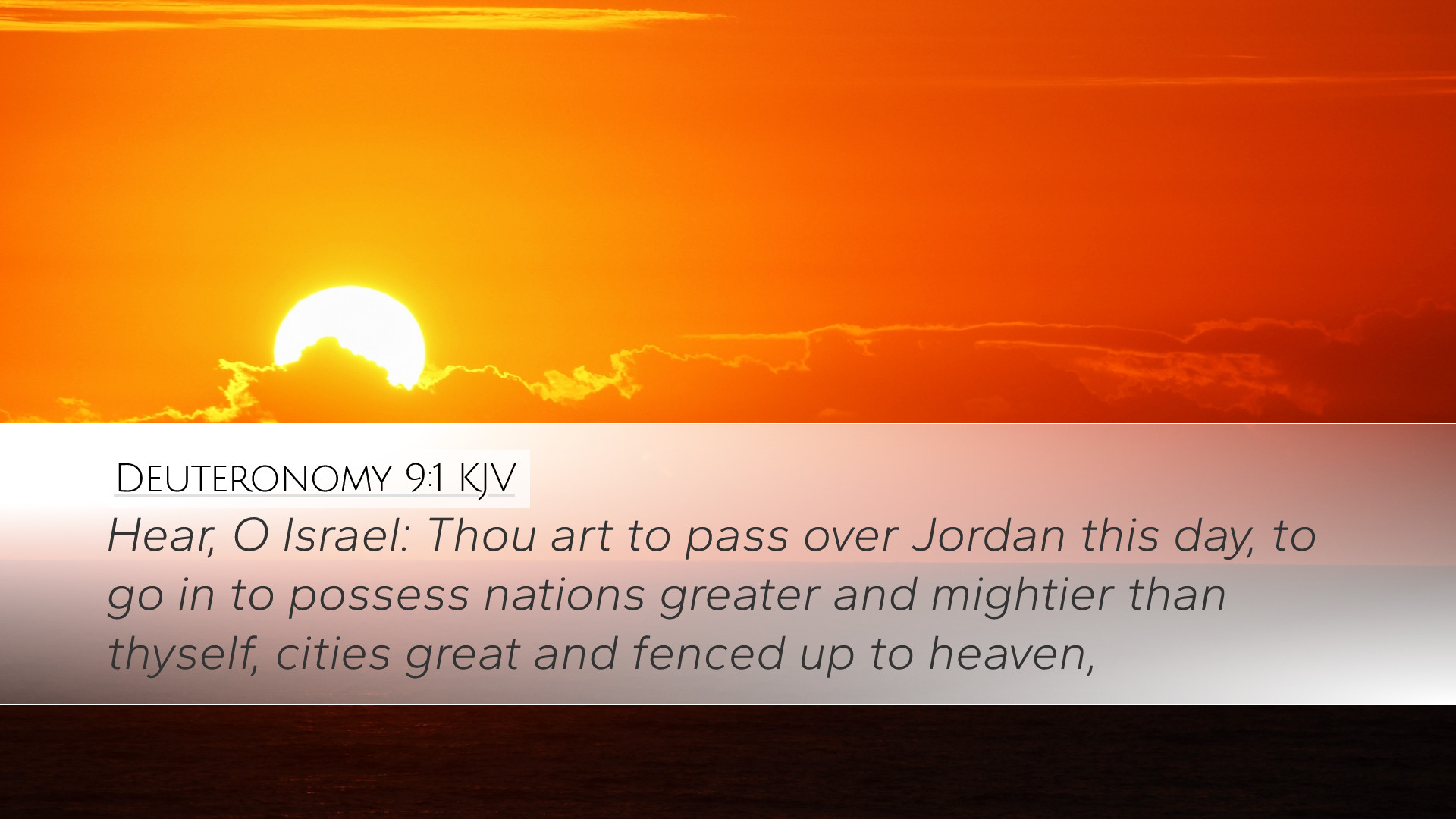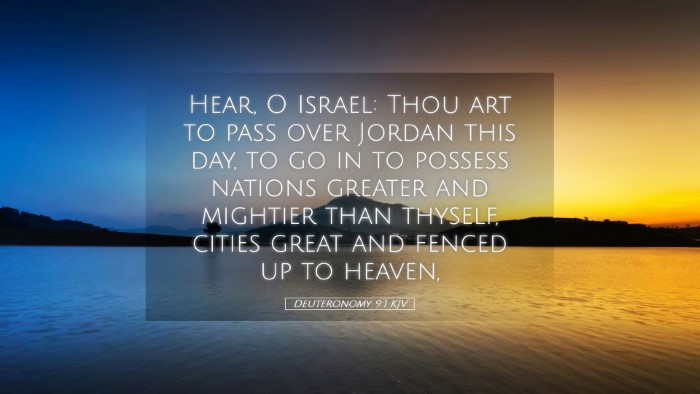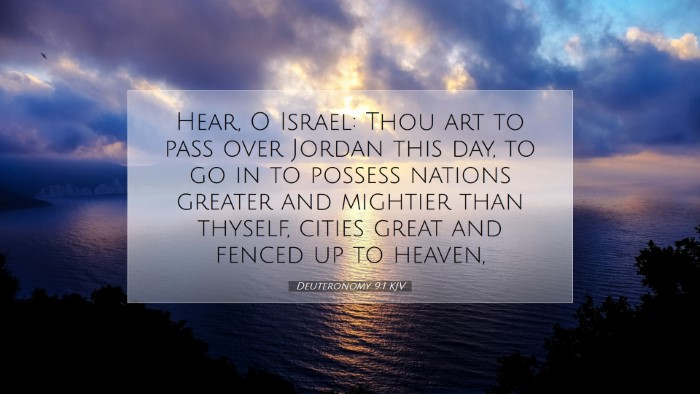Commentary on Deuteronomy 9:1
Verse Analysis
"Hear, O Israel: thou art to pass over Jordan this day, to go in to possess nations greater and mightier than thyself, cities great and fenced up to heaven."
General Context
Deuteronomy serves as a recap and farewell address of Moses to the Israelites as they prepare to enter the Promised Land. The ninth chapter begins a new section where Moses stresses the importance of obedience and the consequences of disobedience while reminding the people of God's grace and the strength of their enemies.
Moses' Circumstantial Reference
Moses begins by calling upon Israel to take heed of the significant task before them. He acknowledges their responsibility to cross the Jordan River to claim the land promised by God. The reference to Jordan signifies entrance into a vital phase of their covenant journey.
Insights from Matthew Henry
Matthew Henry emphasizes the necessity for the Israelites to recognize their own vulnerabilities in contrast to the might of their enemies. He notes that although cities are described as "great and fenced up to heaven," the assurance of God’s presence and assistance is paramount. Henry interprets this verse as a call to faith and reliance on divine strength rather than human capabilities.
- Theological Implications: The idea that God will empower His people to surmount obstacles, even those appearing insurmountable, is foundational to the understanding of covenant theology.
- Faith in Action: The crossing of Jordan symbolizes a faithful response to God’s promises.
Insights from Albert Barnes
Albert Barnes focuses on the phrase "greater and mightier than thou." This serves as a reminder for the Israelites about the importance of humility and the recognition of God's sovereignty. Barnes highlights that despite their frailty, they are assured of God’s support in confronting nations that seem overwhelmingly powerful.
- Humility Before God: The acknowledgment of their need for divine assistance is crucial in their march into the land.
- Preparing the People: Barnes notes that Moses is preparing the people not only for physical warfare but also for the spiritual battle ahead. They must align their hearts with God’s will and commands.
Insights from Adam Clarke
Adam Clarke provides a detailed exposition of the geographical and cultural significance of the nations they are about to face. He elaborates on how understanding the background of these nations can bolster the Israelites’ confidence knowing that their battles are ultimately God’s battles.
- Fenced Cities as a Symbol: The description of "cities great and fenced up to heaven" indicates the fortified strength and wealth of these nations, serving as a metaphor for any formidable circumstance believers might encounter.
- The Divine Guarantee: Clarke reminds readers of God's previous deliverances, suggesting that the past victories should inspire present courage and faith.
Application for Today
This verse transcends its initial historic context and speaks profoundly to contemporary believers. The challenges presented by the "nations greater and mightier" can be seen as trials and obstacles faced in various forms, including spiritual battles, societal pressures, and personal crises.
- Faith and Obedience: Believers are called to maintain faith and obedience as they face their challenges, trusting that God equips them with what they need.
- Global Context: In a world that may often seem hostile to faith, the encouragement found in this passage speaks to the perseverance required of the church today.
- Community Strength: Just as the Israelites were to move together as a nation, modern believers are reminded of the strength found in communal faith and unity in purpose.
Conclusion
Deuteronomy 9:1 serves as a profound reminder of the challenges faced by the Israelites and the steadfast presence of God. For pastors, students, theologians, and Bible scholars, this verse encourages a deeper understanding of covenant commitments that transcend time, urging believers to rely on divine support in the face of formidable challenges.


